
26
Jun
Sovereignty and Survival: Ethiopia’s Geostrategic Dilemma Amid Iran-Israel Turmoil
The escalating conflict between Iran and Israel has emerged as a significant geopolitical crisis with far-reaching implications for the Horn of Africa, particularly in the realms of trade, energy, and regional security. For Ethiopia- landlocked nation highly dependent on maritime trade routes – this war presents critical and multifaceted challenges. These include trade disruptions, threats to food and energy security, and the urgent need to develop alternative trade corridors, especially in light of the closure of Port Sudan due to Sudan’s civil war, the increasing vulnerability of Djibouti, and Ethiopia’s deepening relationship with Iran. Together, these factors may draw Ethiopia closer into the periphery of this intensifying regional conflict.
The Iran-Israel confrontation threatens to destabilize key maritime routes, especially those transiting the Red Sea and the Gulf of Aden arteries – that are vital for Ethiopia’s import and export lifelines. Ethiopia depends on the Port of Djibouti for over 95 percent of its trade volume, including essential commodities such as oil, food, and machinery. Any escalation in hostilities – particularly missile strikes on regional infrastructure or disruptions in the Strait of Hormuz – could cripple this critical trade corridor. Iran’s declared intention to strike British and French military installations in the event of Western intervention raises the specter of a broader conflict that could directly endanger Djibouti, which hosts several foreign military bases. A targeted attack on Djibouti’s port or its energy infrastructure would paralyze Ethiopia’s supply chain, trigger cost surges, and significantly delay the delivery of crucial goods.
Ethiopia’s vulnerability is compounded by its heavy reliance on imported oil. Any disruption in the Strait of Hormuz would likely trigger a sharp rise in global oil prices, escalating Ethiopia’s already high import costs. Inflation – already exacerbated by the depreciation of the Ethiopian birr and shrinking foreign currency reserves -would worsen. Compounding this economic fragility is the country’s dependency on imports of sugar, fertilizers, and other staples via the Red Sea. Heightened risks along these shipping routes could prompt carriers to reroute vessels around the Cape of Good Hope or through the Indian Ocean – journeys that are significantly longer and more expensive. The result would be higher freight rates, delayed shipments, and potential shortages of critical goods, endangering national food security and economic stability.
The ramifications extend beyond trade logistics. Foreign remittances account for approximately five percent of Ethiopia’s GDP, largely sent by migrant workers in the Gulf States. A protracted conflict could destabilize Gulf economies, reducing these workers’ income and their ability to remit funds, thereby deepening Ethiopia’s foreign currency crisis. In light of these pressures, it is imperative for the Ethiopian government to take decisive action: subsidizing fuel prices, prioritizing foreign currency allocation for essential imports, and implementing inflation control mechanisms must become immediate priorities.
The closure of Port Sudan due to Sudan’s civil war has eliminated a crucial alternative trade route, reinforcing Ethiopia’s overreliance on Djibouti and underscoring the strategic necessity of diversified sea access. Historically, Port Sudan served as a vital contingency corridor, but its inaccessibility has left Ethiopia dangerously exposed. In response, Addis Ababa must accelerate the development of alternative maritime outlets to safeguard its trade and energy security.
Among the most viable alternatives is the Port of Berbera in Somaliland, which has received substantial investment from the United Arab Emirates. Ethiopia’s recent memorandum of understanding with Somaliland – granting access to Berbera in exchange for formal recognition of Somaliland’s independence – offers a strategic lifeline. However, this diplomatic gamble has provoked a strong reaction from Somalia, which maintains sovereignty claims over the territory. While Berbera could offer a reliable outlet to the Gulf of Aden, the agreement introduces new diplomatic tensions that demand careful, strategic navigation to avoid regional fragmentation.
Another promising option is the Lamu Port-South Sudan-Ethiopia Transport (LAPSSET) corridor in Kenya. Designed to connect Ethiopia with the Indian Ocean, this initiative could reduce Ethiopia’s dependency on Red Sea routes. However, Lamu Port is only partially operational, and persistent security threats in Kenya, particularly from al-Shabaab, could impede its viability. Similarly, ports like Mombasa in Kenya and Dar es Salaam in Tanzania remain accessible but involve longer and more costly overland routes, reducing their economic attractiveness.
Securing sovereign access to the sea is not merely a logistical ambition but a national security imperative for Ethiopia. The risks associated with dependence on a single corridor such as Djibouti are now unmistakably clear. Diversifying access to multiple ports would significantly bolster Ethiopia’s resilience to regional shocks, even if it necessitates substantial financial investment and intensive diplomatic engagement. In the long term, achieving sovereign maritime access must remain a strategic priority.
Ethiopia’s strengthening ties with Iran, particularly in security and intelligence cooperation, introduce additional complexity to its position. While this alignment may enhance Ethiopia’s internal security posture, it simultaneously risks entangling the country in the broader dynamics of Middle Eastern rivalries. Israel views Iran as a strategic adversary, and Ethiopia’s association with Tehran could complicate its relationships with Western allies and Israel. Nonetheless, Ethiopia has maintained a long-standing policy of neutrality and pragmatic diplomacy. Its willingness to engage rival powers in the region reflects this balanced approach. Historically, Ethiopia was the first sub-Saharan country to establish diplomatic relations with Iran in the 1960s, and Iran reciprocated by opening its second African embassy in Addis Ababa – signaling the enduring strategic value of this bilateral relationship. This engagement continued through successive Iranian administrations, underscoring the depth of the alliance.
Given Ethiopia’s geopolitical proximity to fragile states such as Sudan, Somalia, and Eritrea, it remains acutely vulnerable to spillover effects from any escalation. Iran’s threats against Western military installations heighten the risk of a broader conflict engulfing the Red Sea and Gulf of Aden regions. The International Crisis Group has warned that such a scenario could ignite a proxy war in the Horn of Africa, with non-state actors like al-Shabaab or local militias exploiting the ensuing instability. To mitigate such threats, Ethiopia’s government and business community must adopt a proactive stance – enhancing intelligence capabilities, securing infrastructure, and preparing for asymmetric threats.
Ethiopia’s history provides important lessons. The 1998–2000 Eritrean War and the subsequent loss of access to the Port of Assab forced Ethiopia to become reliant on Djibouti, a cautionary tale on the dangers of corridor dependence. The 2011 Arab Spring and subsequent conflicts in Yemen and Libya similarly disrupted Red Sea trade, illustrating how rapidly regional instability can reverberate through Ethiopia’s economy. These precedents underscore the need for long-term contingency planning and strategic diversification.
If the Iran-Israel conflict escalates, Ethiopia faces a deeply uncertain trajectory. Reduced remittances, surging oil prices, disrupted trade routes, and intensified regional tensions could push its economy toward crisis. Yet this moment also presents an opportunity. Ethiopia must prioritize the diversification of its trade corridors, reclaim sovereign maritime access, pursue renewable energy initiatives to reduce dependency on oil imports, and prepare for possible revenue losses from the Gulf region. Strategic foresight and swift, coordinated action are vital.
The outcome hinges on Ethiopia’s decisiveness. A proactive, calculated response can shield the country from the worst impacts of the crisis and potentially reposition it as a resilient, sovereign actor in the region. Inaction, however, could lead to economic deterioration and heightened instability – especially if Djibouti’s port becomes a direct target or the Horn of Africa descends into broader conflict. Ultimately, it is the Ethiopian government’s resolve and vision that will determine whether the nation endures this storm with strength or falters under the weight of a distant but deeply consequential war.
By Surafel Tesfaye,Researcher,Horn Review

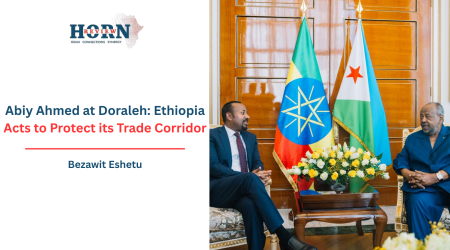
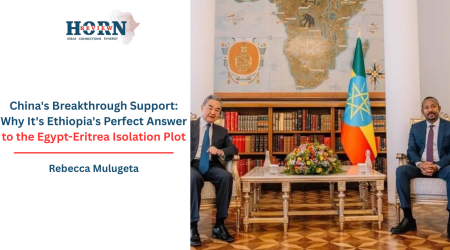
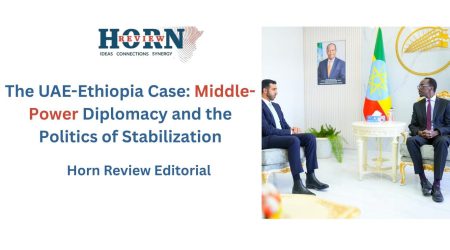
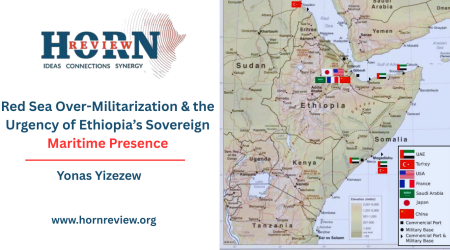
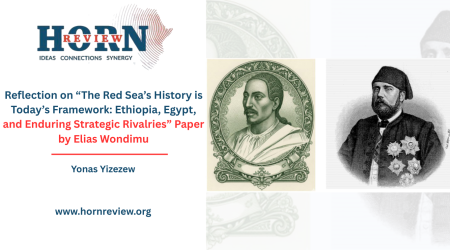
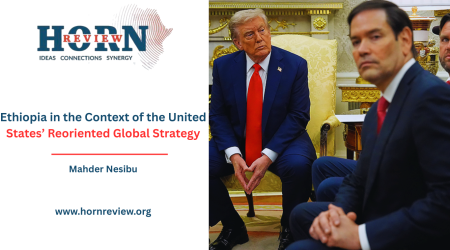


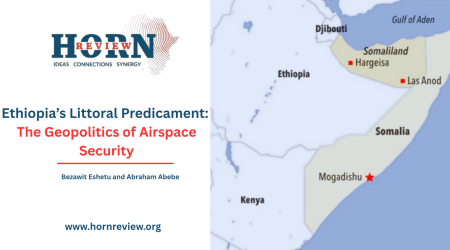

Comment (1)
Hi there, this weekend is good in support of me, since this occasion i
am reading this great informative article here at my home.